Search
Remove Ads
Advertisement
Summary 
Loading AI-generated summary based on World History Encyclopedia articles ...
Search Results
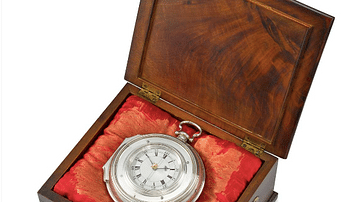
Article
Harrison's Marine Chronometer
John Harrison (1693-1776) invented an accurate marine chronometer after several decades of research and development. While the pendulum clock had already been invented in the 17th century, a clock that could withstand the vagaries of the...
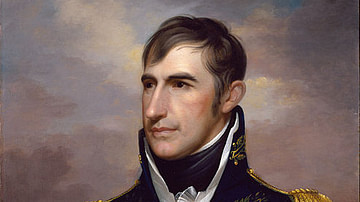
Image
William Henry Harrison, 1813
Portrait of William Henry Harrison (future ninth president of the United States) as a major general in the War of 1812. Oil on canvas by Rembrandt Peale, c. 1813.
National Portrait Gallery, Washington, D.C.
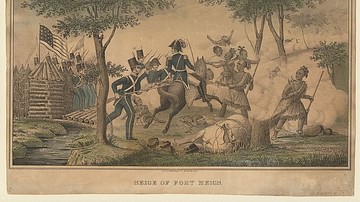
Article
Siege of Fort Meigs
The Siege of Fort Meigs (28 April to 9 May 1813) was a major engagement on the northwestern frontier of the War of 1812. It saw a US army under Major General William Henry Harrison, holed up in the hastily built Fort Meigs, withstand a siege...
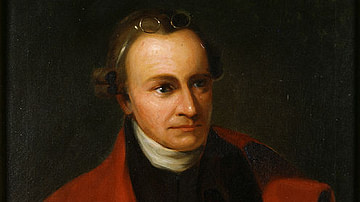
Definition
Patrick Henry
Patrick Henry (1736-1799) was a Virginian lawyer and politician who played a vital role in the American Revolution (c. 1765-1789). Known for his brilliant oration, including the famous Give Me Liberty or Give Me Death speech, Henry served...
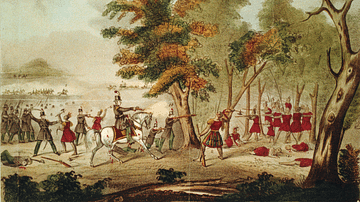
Article
Battle of the Thames
The Battle of the Thames (5 October 1813), or the Battle of Moraviantown, was a decisive engagement in the War of 1812, in which a US army under General William Henry Harrison defeated a British and Native American force in Upper Canada...

Definition
Henry VIII of England
Henry VIII of England ruled as king from 1509 to 1547. The second Tudor king after his father Henry VII of England (r. 1485-1509), Henry had inherited a kingdom which enjoyed both unity and sound finances. Famous for his six wives as he searched...
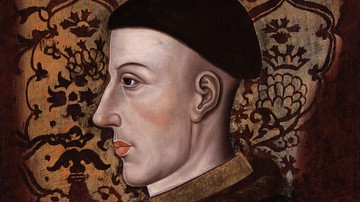
Definition
Henry V of England
Henry V of England ruled as king from 1413 to 1422. Succeeding his father Henry IV of England (r. 1399-1413), Prince Henry established himself as a fine military leader in battles against English and Welsh rebels in the first decade of the...

Definition
William the Conqueror
William the Conqueror (c. 1027-1087), also known as William, Duke of Normandy, led the Norman Conquest of England in 1066 when he defeated and killed his rival Harold Godwinson at the Battle of Hastings. Crowned King William I of England...

Definition
Henry VI of England
Henry VI of England ruled as king from 1422 to 1461 and again from 1470 to 1471. Succeeding his father Henry V of England (r. 1413-1422), Henry VI was crowned the king of France in 1431 but he could not prevent a French revival led by Charles...
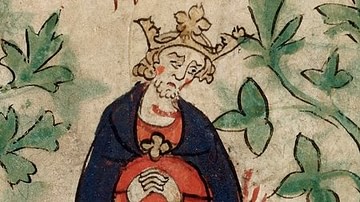
Definition
Henry I of England
Henry I reigned as the king of England from 1100 to 1135 CE. The son of William the Conqueror (r. 1066-1087 CE), Henry succeeded his brother William II of England (r. 1087-1100 CE) after he had died in a hunting accident and left no heir...